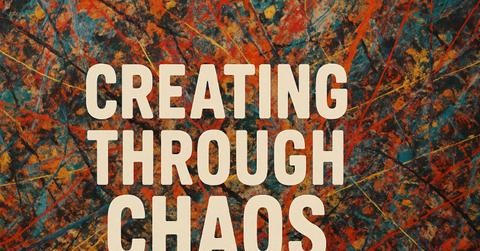
Creating Through Chaos
During the "Beyoncé Bowl," it became unmistakable that Beyoncé was not just reclaiming what is rightfully ours—Black culture and artistry—but she was also breathing new life into it.
By Evan MajorsMay 6 2025, Published 3:24 p.m. ET
Like a master sculptor chiseling away at a block of marble, she redefined and elevated Black narratives, turning them into monuments of unapologetic excellence. Beyoncé didn't just perform; she orchestrated a symphony of Black Texas country pride that rang out like a clarion call, reminding the world who sets the rhythm of culture and creativity.
Like most of the world, on the evening of Christmas Day 2024, I watched the first-ever live NFL football games on Netflix. Some viewers tuned in to watch the games, while others tuned in for what was dubbed the "Beyoncé Bowl," the halftime show of the Houston Texans and the Baltimore Ravens game played in her hometown of H-Town. It was the first time Beyoncé performed songs from her country-inspired album Cowboy Carter.
I've never been a member of the Beyhive or a massive fan despite being a meticulous, perfectionist Virgo like Queen Bey. Her headlining performance at the 2019 Coachella Festival made me take notice like never before, in the same way Cowboy Carter did. It wasn't just the music—it was a revolutionary declaration of cultural pride, defying the forces that have long sought to silence Black artistry, especially when that art comes from a Black woman.
Her performance reminded Black creators of our enduring strength and innovation, echoing the resilience that has defined our history. Yes, I'm aware Beyoncé has had other moments throughout her career and albums that have impacted the culture, but they didn't personally captivate me in the same way.
Beyoncé's performance is the latest chapter in a legacy of creativity born from necessity. Like our African ancestors, Black Americans have always created to survive, communicate, and inspire. From the rhythmic beating of African drums to the intricate spiritual storytelling, creativity has been our way of carving meaning and connection even in the most trying times.
The beating of African drums was not just spiritual; it was also a vital form of communication between people and tribes. It was in the face of slavery, the Reconstruction Era, Jim Crow, the Civil Rights Movement, the Montgomery Bus Boycott, the Freedom Riders, the Sit-In Movement, the Little Rock Nine integration, the Black Power Movement, and the Harlem Renaissance that we birthed local and national political and social movements of change.
The Harlem Renaissance, much like Beyoncé's modern cultural contributions, was a moment when Black Americans boldly reclaimed their narratives through music, film, visual art, literature, and theater. This era not only celebrated our artistry but redefined our identity and showcased the transformative power of storytelling.
This reshaping of our pride, identity, and consciousness took place from the end of World War I to the Great Depression. It birthed some of the greatest Black artistic works from Langston Hughes, Zora Neale Hurston, Duke Ellington, Billie Holiday, and Bessie Smith. These works are still studied and revered today.
By the time this article is published, another Trump presidency will be in full swing. It's imperative over these next four years that Black people, people of color, LGBTQ+, and anyone who doesn't subscribe to Trumpism, regardless of race, religion, gender, or sexual orientation, not only protect your peace but go all in on creating content and controlling our narratives because this is bigger than political party affiliations.
Right now is the time to remember who we are as a people and to stand up in the face of adversity, fear, and even death, just as we always have. We're witnessing the dismantling of political, social, and educational systems that people died to protect.
We cannot stop creating and telling our stories. From the Harlem Renaissance to Cowboy Carter, our narratives have always been a lifeline—reclaiming identity, shaping legacy, and inspiring the world. Black culture has always been the blueprint, setting trends and defining global influence without validation.
Keep creating, speaking your truth, and galvanizing around causes that uplift our collective culture. We don't need validation because Black culture, in all its forms, already defines global influence. Let them mimic our TikTok dances and trends—we've always been the biggest influencers.
Fight for truth. Fight for justice. Fight for the people you love. A cause or issue doesn't have to affect you directly for you to fight for it. It could involve someone you love. People hate others because they hate themselves.
Our stories and creativity are acts of survival and triumph, reminding us of our roots and power. Every melody, lyric, frame, and word declares that our experiences matter and our complacency won't move the needle.
Bleu Magazine is a shining example of this mission—a beacon of independent Black-owned media that boldly champions our voices. By supporting platforms like Bleu, readers become active participants in the fight for narrative control, ensuring that our stories are told authentically, unapologetically, and on our terms. Together, we shape the future of culture and leave a legacy for generations to come.
Happy 100th Issue, Bleu Magazine! Here's to 100 more stories that shape and celebrate us.

